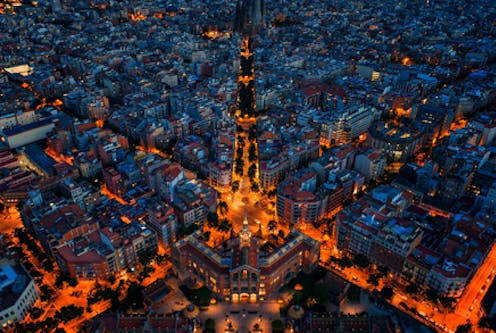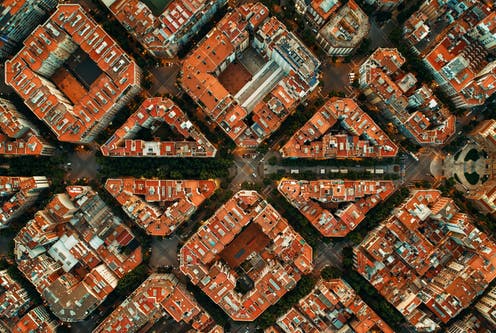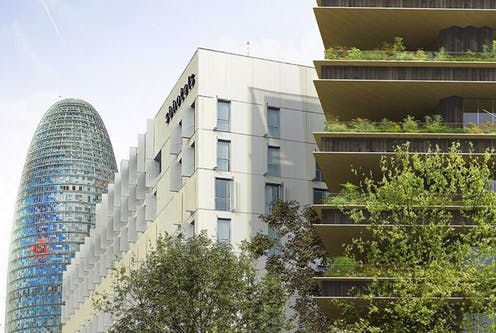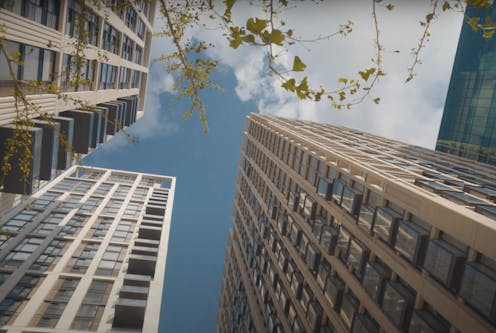The Spanish Creative Hub
More famous for its beaches, architecture, and street life, it is tourism – not digital innovation – that often comes to mind when thinking of Barcelona, the capital of Catalonia. Yet, Barcelona also ranks as one of the most innovative cities in the world and is an increasingly attractive destination for property investment.
Long after the tourist season, its cafes still buzz with expats, including techies, global nomads, and students. They all enjoy the chance to live and work in a vibrant cultural setting, a feature that should excite any tech professional considering a move to Barcelona.
Barcelona is also home to some of the EU's finest international schools, universities, and business schools. With Barcelona's relatively low cost of living and lower per capita income, tech and other talents are less expensive to employ than in Europe's largest hubs.
In the early 2000s, the city carefully laid plans to attract economic activity that would create jobs and drive sustainable growth. Since then, cross-sector public and private initiatives have shaped Barcelona into a powerful technology and knowledge hub. The ongoing development of the 22@ Innovation District, combined with new sustainability projects like the Superblocks, promises a bright future for potential property investors.
Moreover, the rise of remote work has made Barcelona a prime location for digital nomads, increasing demand for residential and commercial properties. The city's real estate market is also adapting, with a notable trend towards converting office spaces into residential units, particularly in revitalized areas like El Poblenou.
Barcelona's success is reflected in the indexes: it continues to score highly in innovation and liveability rankings. According to the venture capital firm Atomico's State of European Tech 2023, Barcelona was the seventh-biggest European hub by capital invested in 2021. Additionally, INSEAD ranked it 36th out of 155 in its 2021 Global Talent Competitiveness Index, praising Barcelona's efforts to enhance its resilience post-COVID-19.
With its careful planning and ongoing investment in high-value sectors, Barcelona is set to continue scoring well on liveability indicators such as innovation, economy, and connectivity. Its beaches, mountains, and laid-back Catalonian lifestyle remain enduringly attractive.
PATRIZIA City Snapshot
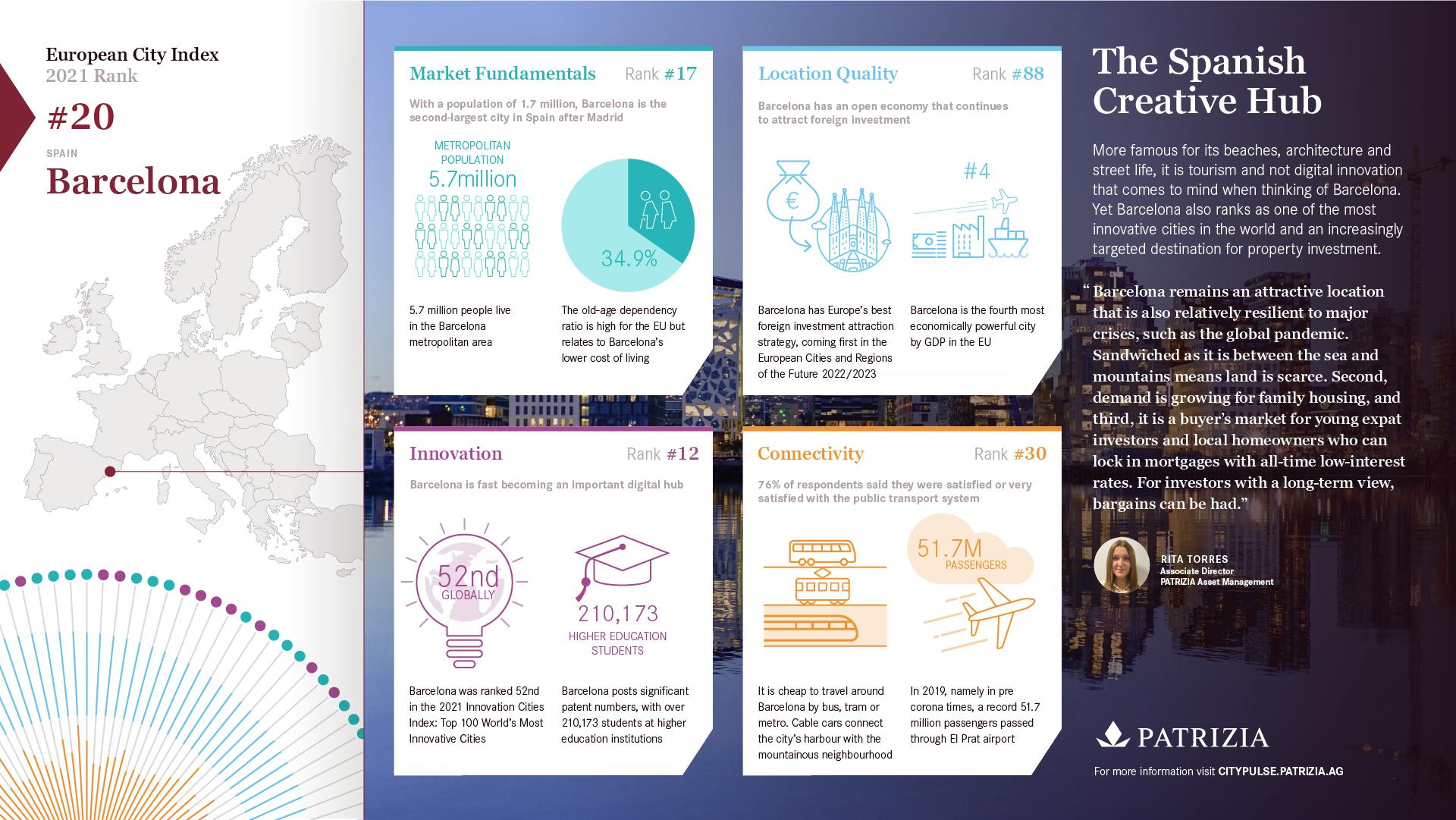

30
Barcelona’s Market Fundamentals Ranking
With a population of 1.7 million, Barcelona is the second-largest city in Spain after Madrid. Meanwhile, 5.7 million people live in the Barcelona metropolitan area. The old-age dependency ratio is high for the EU but relates to Barcelona’s lower cost of living: Barcelona was ranked a low 84th in Mercer’s 2021 Cost of Living Index. Cities with a higher cost of living make it hard for the elderly to live there. In 2020, 21% of its population was aged 65 or over, while 67% were between 15 and 64 years old.


